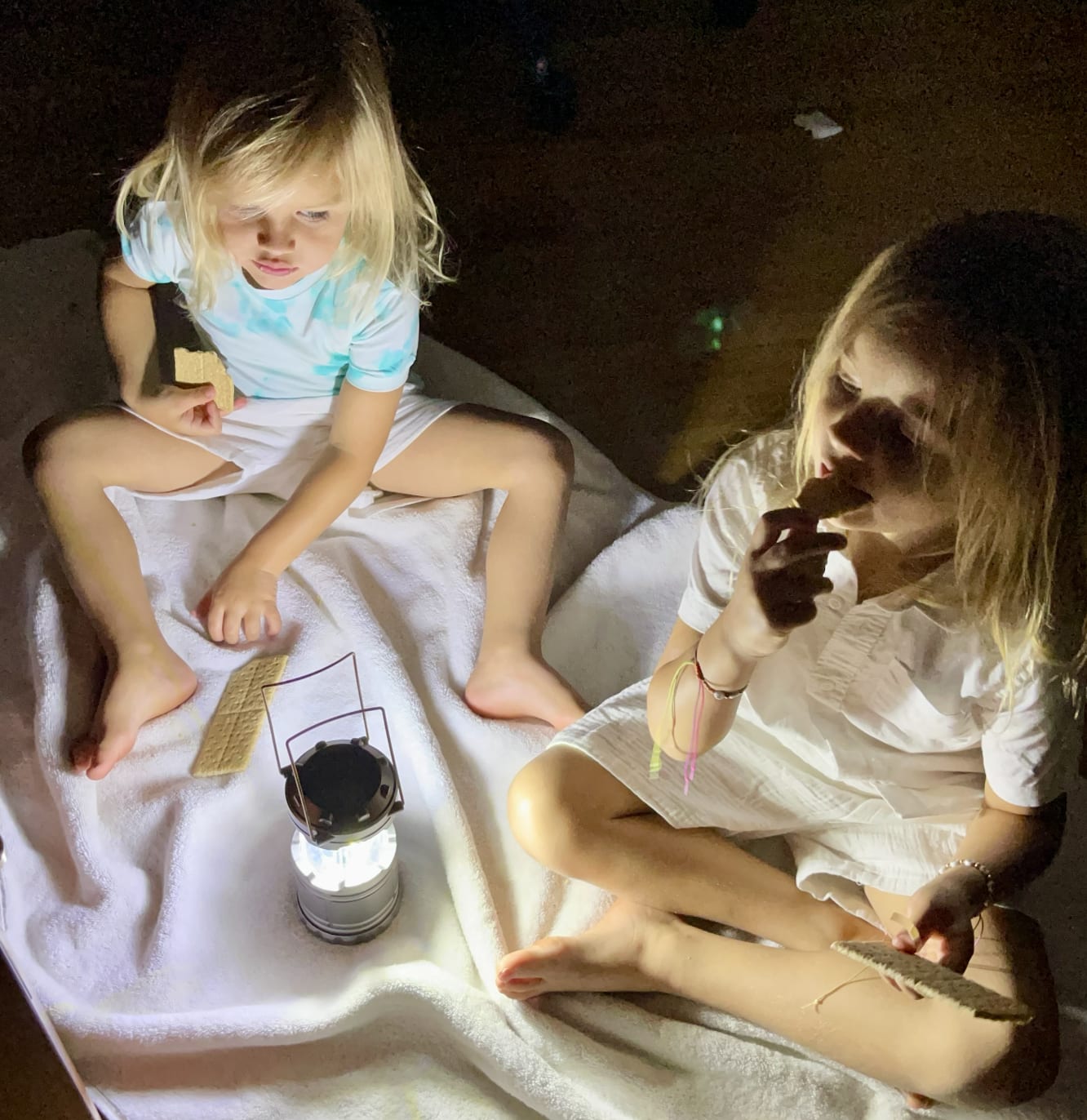I like the epistemic norm of having multiple working hypotheses, and I think it is a valuable norm/skill for EAs to cultivate. Last night two of my kids gave me a nice reminder that even if we value an epistemic norm, we don’t always remember to employ it.
I was putting Earnie and Teddy to bed when they suddenly claimed they were hungry. This is after I made “yummy noodles”—the dinner they requested—and had a bit of a hard time getting them to actually sit down to eat it. We’d also just done baths and brushed teeth, and to be honest, I kind of exhausted and ready for bed. My first thought was, "This is definitely a stalling tactic."
We had a back and forth about it, and ultimately I decided to go ahead and get them something, even though I wasn’t fully convinced they were hungry. So I went ahead and made a little "midnight feast" picnic of graham crackers.
I opened a new box of the same crackers we'd had the day before. The kids had one each, then asked for "yesterday's crackers" instead. That cracker box was empty, and this was the same brand and flavor. I was losing my patience, and at this point, I was sure this was just another delay tactic. I confidently told them, "These are exactly the same crackers as yesterday. They taste the same!"
Both boys were adamant that they were not the same. I persisted and argued with them, explaining my view over and over again for a few minutes, getting increasingly frustrated with them. But then I thought, “Ok, what is going on here, I’m actually quite confused.” So I decided to taste a cracker myself.
Plot twist: The crackers were terrible. They tasted stale or maybe even expired. I genuinely spit it out and couldn’t believe they ate the first one! I was so embarrassed.
This made me reflect on a few things:
- Even when we're really confident about something, it's important to consider alternative explanations. My kids weren't trying to manipulate me;[1] they were giving me accurate information that I initially dismissed.
- Our prior experiences (like kids stalling at bedtime) can sometimes lead us to jump to conclusions too quickly. This can happen in much more important situations too.
- Practicing epistemic humility in small, low-stakes situations like this one can help build the habit for when it really matters.
I think holding multiple hypotheses in mind is a great norm to promote, and I didn’t immediately find a post about it; I’d love a link if someone has one! [2]
I also think it is a good norm to say “oops” and flag when we don’t hold ourselves to our own epistemic standards, so I’d be curious to hear other people share examples of when they’ve had a similar surprise! Any tips for making sure to practice this in daily life/in higher stakes situations?
- ^
Note: it is possible that they were trying to manipulate me to stall bedtime and also the crackers were stale.
- ^
Thanks Peter McClurskey for reminding me to include Split and Commit!


Psychotherapy, or at least most cognitive and behavioral ones, offer various tools to cultivate such skills. The most emblematic one surely being the columns used in cognitive restructuring. They are usually oriented toward a specific diagnosis, but one can find plenty of free worksheets online. It sounds like a good place to start to get inspiration, if one's interested. But note that this demands quite the commitment : rewiring one's own thought process is no easy task.
Upon researching the term, I'm not confident this is the right term anymore, but I'm pretty sure I've seen and/or heard that the skill sets those techniques helps you get are considered as a subset of what is coined by the umbrella term "cognitive flexibility". The first results I get seem to associate this with the ability to adapt to change (in information, environment...) first and foremost, rather than being able to juggle between different theories or explanations, so I am either mistaken or the latter tends to get overshadowed by the former. If someone can clear things for me, that would be appreciated.
Surely adapting those tools, or creating new, specific ones, for general purpose mental hygiene, so to say, rather than helping with various specific diseases, could be interesting. I suppose some people in personal development already tried, but it's pretty hard discerning who you can trust in that field, and I'm really not familiar with it. Pushing academia to put more effort in non-clinical application is probably worthwhile. Just like I don't need to have any deficiency to profit from accurate nutritional information, I don't need to be anxious or depressed to benefit from education about how I to healthily deal with my own thoughts.
That said, it is painfully hard to make real progress with this, even with guidance (which is either saturated, very expansive and/or unreliable it seems...), and without institutionalization (schools, workplace programs...) I'm not sure whether it's worth the expanses. But mentally ill people are not representative of the whole population, and similar things like mood regulation programs have been implemented in schools already and show what seems to me like promising results for such innovative interventions, so my two cents is that it's at least worth a shot.
(It might be obvious, but mandatory disclaimer anyway : not a specialist, just interested in such things)